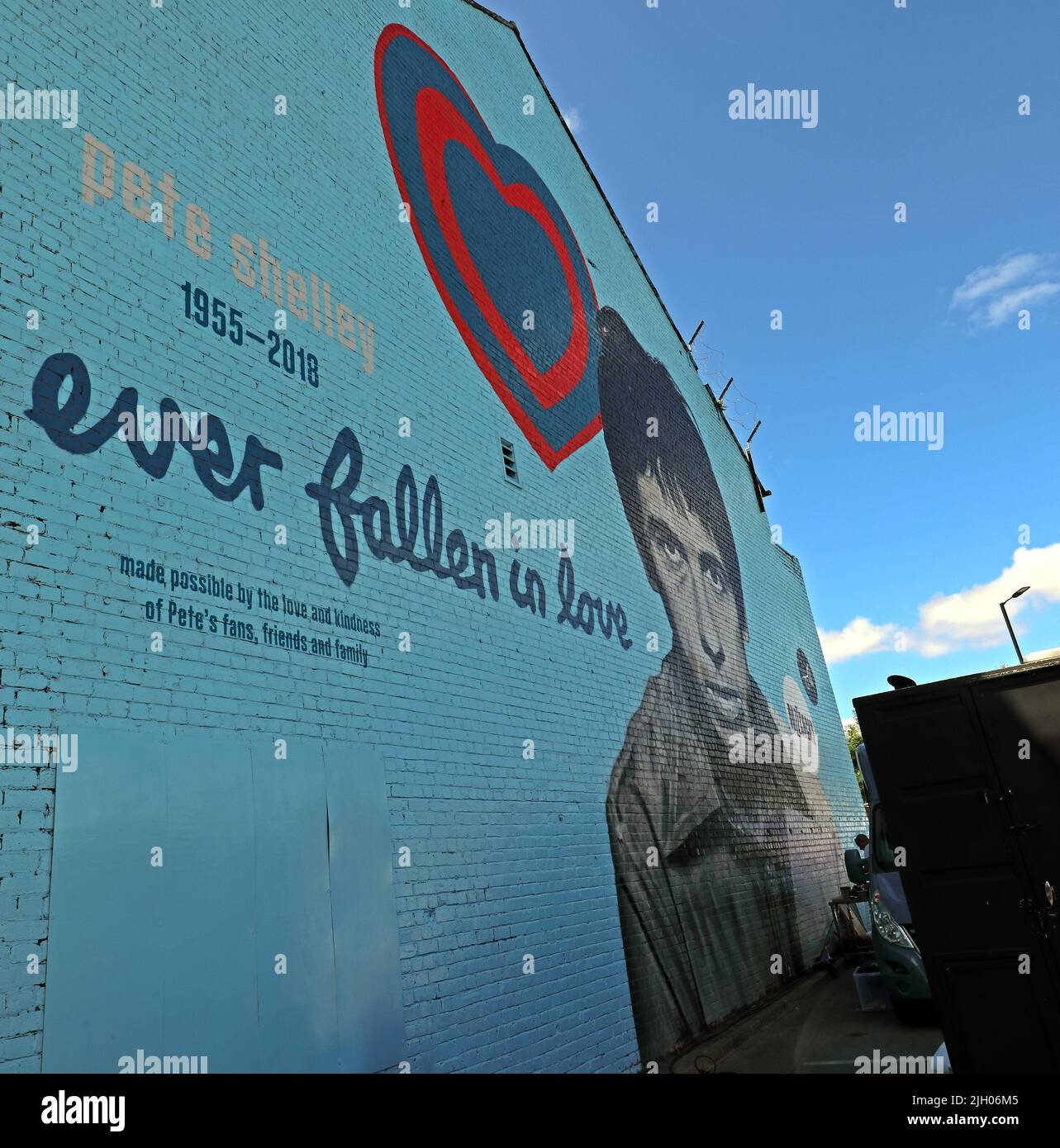Pete Shelley Buzzcocks, Peter Campbell McNeish, memorial mural - Ever Fallen In Love, Leigh Town Centre, Greater Manchester, England, UK

Image details
Contributor:
Tony Smith / Alamy Stock PhotoImage ID:
2JH06M5File size:
53.7 MB (2 MB Compressed download)Releases:
Model - no | Property - noDo I need a release?Dimensions:
4304 x 4360 px | 36.4 x 36.9 cm | 14.3 x 14.5 inches | 300dpiDate taken:
13 July 2022Location:
10 Back Salford, Leigh, Greater Manchester, England, UK, WN7 4AZMore information:
Wigan Council has worked closely with The Pete Shelley Memorial Campaign to place the mural close to the new archive facilities at Leigh Town Hall and the historic Turnpike Centre. Pete Shelley (born Peter Campbell McNeish; 17 April 1955 – 6 December 2018) was an English singer, songwriter and guitarist. He formed early punk band Buzzcocks with Howard Devoto in 1976, and became the lead singer and guitarist in 1977 when Devoto left. The group released their biggest hit "Ever Fallen in Love (With Someone You Shouldn't've)" in 1978. The band broke up in 1981 and reformed at the end of the decade. Shelley also had a solo career; his song "Homosapien" charted in the US in 1981. Shelley's stage name is inspired by Percy Bysshe Shelley, his favourite Romantic poet Shelley formed Buzzcocks with Howard Devoto after they met at the Bolton Institute of Technology (now the University of Bolton) in 1975 and subsequently travelled to High Wycombe, near London, to see the Sex Pistols. The band included bass guitarist Steve Diggle and drummer John Maher; they made their first appearance in 1976 in Manchester, opening for the Sex Pistols. In 1981 Shelley released his first solo single, "Homosapien", produced by Rushent. On this recording he returned to his original interests in electronic music and shifted emphasis from guitar to synthesiser; Rushent's elaborate drum machine and synthesiser programming laid the groundwork for his next production, the chart-topping album Dare by the Human League. "Homosapien" was banned by the BBC for "explicit reference to gay sex". "Homosapien" peaked at number fourteen in the US dance chart